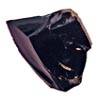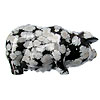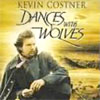September, 2011

Happy Autumn!Today's issue is almost fully dedicated to bead contests. Some of them are just over, they became history and we introduce the winners, another contest is starting. Read in September's issue of our newsletter:
Glass from volcano
Contact us with any questions at
info@mylovelybeads.com.
IBA 2012 - Pop Art. Rules Fashion Colorworks 2011. Second Place Winners Native American Necklace contest winners October upcoming events Best regards, MyLovelyBeads.com Team
|
Glass from volcanoObsidian is a naturally occurring volcanic glass that is produced when lava extruded from a volcano cools rapidly with minimum crystal growth. Obsidian is hard and brittle; it therefore fractures with very sharp edges, which had been used in the past in weapons, and are still used as surgical scalpel blades. Obsidian is mineral-like, but not a true mineral because as a glass it is not crystalline; in addition, its composition is too complex to comprise a single mineral. It is sometimes classified as a mineraloid. Pure obsidian is usually dark in appearance, though the color varies depending on the presence of impurities. It's usually dark green to brown to black color. Very few samples are nearly colorless. In some stones, the inclusion of small, white, radially clustered crystals in the black glass produce a blotchy or snowflake pattern (snowflake obsidian). Obsidian may contain patterns of gas bubbles remaining from the lava flow. These bubbles can produce interesting effects such as a golden sheen (sheen obsidian) or an iridescent, rainbow-like sheen (rainbow obsidian). Obsidian can be found in locations which have experienced eruptions: in Argentina, Armenia, Azerbaijan, Canada, Chile, Greece, El Salvador, Guatemala, Iceland, Italy, Japan, Kenya, Mexico, New Zealand, Peru, Scotland and the United States. Obsidian was valued in Stone Age cultures because, like flint, it could be fractured to produce sharp blades or arrowheads. Like all glass and some other types of naturally occurring rocks, obsidian breaks with a characteristic conchoidal fracture. It was also polished to create early mirrors. Modern archaeologists have developed a relative dating system, obsidian hydration dating, to calculate the age of obsidian artifacts. Obsidian is also used for ornamental purposes and as a gemstone. It possesses the property of presenting a different appearance according to the manner in which it is cut: when cut in one direction it is jet black; in another it is glistening gray. "Apache tears" are small rounded obsidian nuggets embedded within a grayish-white perlite matrix. |
||||||
IBA 2012 - Pop Art. RulesHave fun and join! Beaders Best announces the second contest of the International Bead Award (IBA) 2012 to support the art of beadwork. The theme of this contest is POP ART. "Pop" stands for the English word "popular". The suitability of mass consume can be or turn to Art. Strong colors and shapes, two or three dimensional, a certain simplicity, a reference to everyday objects or free abstraction, all is possible at the same time as well as a smooth succession of objects. Trivial things become original and refreshing. Humor is very important! An international jury manned by five carefully selected people will judge in 9 categories and assign first, second and third prizes. All entries will be shown on the Perlen Poesie website after the jury finish voting. Website visitors will be able to vote among all these entries for the public award. |
||||||
Fashion Colorworks 2011. Second Place WinnersWe continue featuring Fashion Colorworks 2011 winners, and today we are interviewing the Second Place Winners. Angelika Motzkin from Israel is the Second Place winner in Beaded Objects category, she is already well known artist in beading world and she was our guest in March, 2010. Svetlana Karimova from Poland was a participant of the Fashion Colorworks last year, she did a great job, but this year she has surpassed herself and won the Second Place in Finished Jewelry category. We were happy to have bead artists from Japan in our contest; they create intricate and exceptional beadwork. We were right, the Japanese bead artist Fumiko Sekine came Second in Seed Bead category! So, Second Place Winners, from left to right: Fumiko Sekine, Svetlana Karimova, Angelika Motzkin.
1. Have you ever taken part in bead competitions? If so, in which ones?
Fumiko:
Svetlana:
Angelika: 2. Do you think it is important for you to participate in contests? Why?
Fumiko:
Svetlana:
Angelika: 3. Why did you decide to participate in the Fashion Colorworks Contest?
Fumiko:
Svetlana:
Angelika:
|
||||||
Native American Necklace contest winnersOur congratulations to the winners of the Native American Necklace bead contest! This contest was based on the movie Dances with Wolves, and entrants were suggested to design a necklace using seed beads with a peyote stitch and exact color combination. Alise from Canada took the First Place, Alema from Russia came in second, and the Third Place was taken by Zhukis from Latvia. You can view all of the entries on the Perles & Dent'elles website, listed in three different languages. The jurors of the international panel were:
• Zoya Gutina (www.mylovelybeads.com)
• Coco 006 (bagousenfollie06.skyrock.com) • Peetje (peetjes.canalblog.com) • Laulo (lecrindeperles.blogspot.com)
Native American Necklace contest winners
|
||||||
Upcoming events
October 14, 15, 16, 2011
October 28, 29, 30, 2011 Juried Fine Art & Craft Festivals since 1976. Find the unique handcrafted artwork of thousands of American Artists! Decorative creations for home & garden, exceptional fine art & designer crafts! |
||||||
Note
If you don't see the newsletter properly formatted please click here:
September Issue
|
||||||
© 2011 MyLovelyBeads.com All Rights Reserved.
If you do not want receive our newsletter and you wish to remove your email address from our mailing list, please click the following link to unsubscribe.










